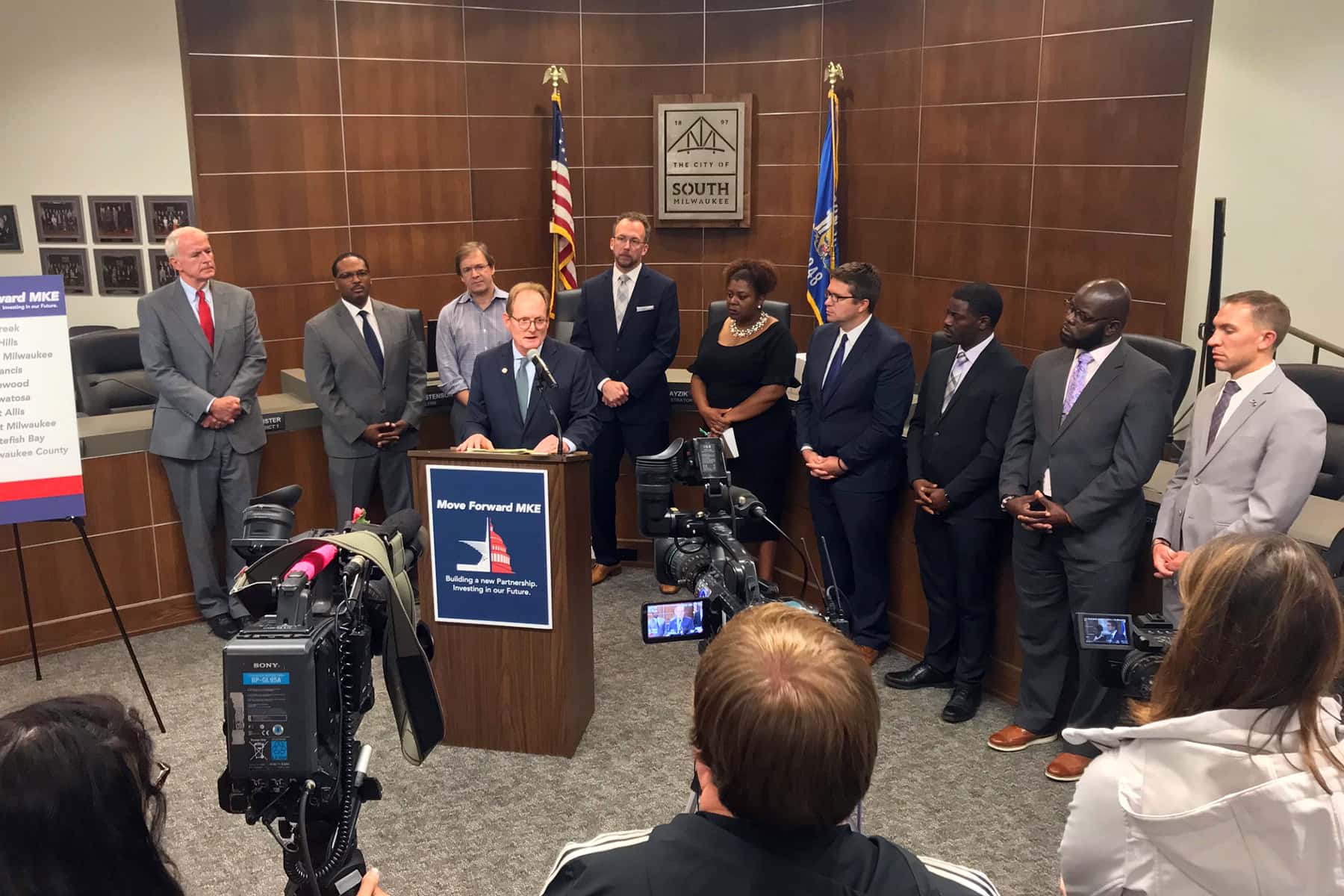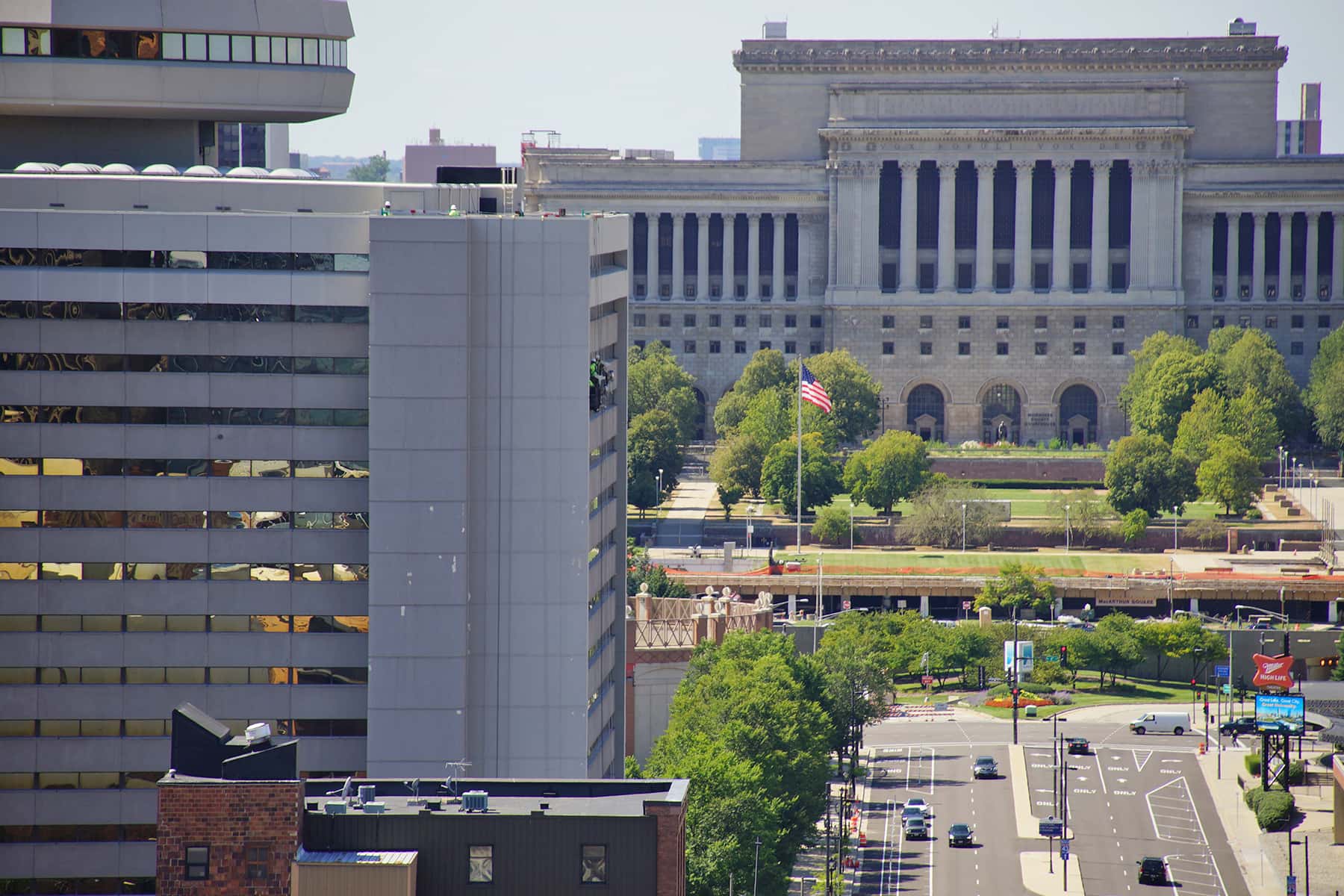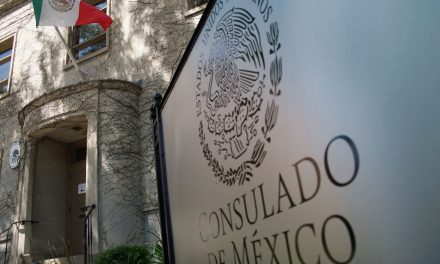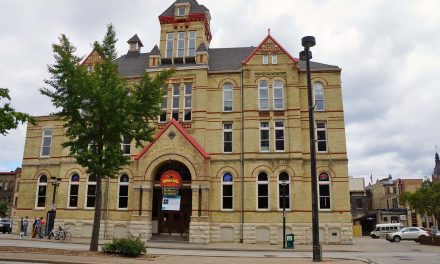
An unprecedented partnership will move forward to pursue new revenue solutions that will provide property tax relief to Milwaukee residents through a local option sales tax.
Representative Evan Goyke and Senator La Tonya Johnson, in partnership with Milwaukee County Executive Chris Abele, Milwaukee Mayor Tom Barrett, local business leaders and elected officials, announced plans to move forward and pursue a new partnership with the State on September 9.
The proposed bill would allow Milwaukee and local municipalities to pursue a binding referendum for a 1 percent local option sales tax that would be reinvested into the community through property tax relief, and countywide priorities.
“It is time to Move Forward Milwaukee,” said Wisconsin State Representative Evan Goyke. “Our local governments need the opportunity to realize a portion of the return on investment they’ve made in building strong communities. This legislation empowers the people of Milwaukee County to decide their future by shifting away from an over reliance on property taxes and uniting communities throughout the County by capturing the benefit of our shared economic success.”
The proposed plan could bring in an extra $160 million in the first year, with more than 25 percent of this income projected to come from visitors and non-residents. The additional revenue is expected to be used for local priorities including: the reduction of property taxes; investments in municipal facilities, community assets and services; and addressing capital projects and deferred maintenance.
“For years we have been doing more with less as state aids continue to decline, and having the option to generate local revenue represents a watershed moment for us to not only sustain ourselves, but to thrive for generations to come,” said Milwaukee County Executive Chris Abele. “This plan is the best way forward for us to give Milwaukee County taxpayers the services and programs they deserve.”
Under this plan, Milwaukee County taxpayers will have the option to raise the sales tax to 6.5 percent, still among the lowest nationwide. The proposed 1 percent local option sales tax will not be added to essential items including groceries, pharmaceuticals and medical equipment.
“Together we are focused on a solution that empowers local voters to decide how our fiscal challenges are addressed,” said Milwaukee Mayor Tom Barrett. “With their approval, we can ease the squeeze on local budgets for police, firefighters, and roads.”
The State of Wisconsin currently gives local governments the fewest alternatives in the country to levy local taxes alternative to a property tax. According to the Wisconsin Policy Forum (WPF), a statewide nonpartisan, independent policy research organization, Wisconsin ranks seventh in the nation and first in the Midwest for its reliance on property taxes for funding municipalities.
A recent report shows that while most states more frequently rely on sales tax to fund operations, Wisconsin’s is the lowest in the Midwest. The report follows up on one from 2017 that suggested the funding structure for Milwaukee was outdated and ineffective. The On the Money report can be found at
“This plan starts to address an outmoded state revenue structure which resulted in Milwaukee having the highest municipal rate of property tax as percentage of local tax revenue amongst all our peer cities in the country,” said Julia Taylor, President of the Greater Milwaukee Committee. “The GMC commissioned the Wisconsin Policy Forum reports in 2016, “Making Ends Meet” and the 2017 “On the Money?” report to look in-depth at our unusual revenue structure with comparisons to peer cities which brought the revenue structure issues to the forefront of the discussion. We are pleased to support these next steps in changing our revenue structure to allow for equitable growth for our neighborhoods, our municipalities and our county.”
This effort is supported by an unprecedented level of bipartisan legislative, community and business leaders in Milwaukee County. The plan to introduce a local option sales tax to the Wisconsin State legislature this fall, and bring the referendum to voters in Spring 2020.
“This new partnership is a critical step in moving the Milwaukee area forward,” said Timothy Sheehy, President of the Metropolitan Milwaukee Association of Commerce. “Milwaukee County and its municipalities house 60 percent of the jobs in our metro area. To provide property tax relief, maintain critical services and support our infrastructure, MMAC supports making a case to voters that this is necessary and sound investment in the future of the entire metro area.”
The Milwaukee County Board will vote once legislation passes to determine if the referendum will go on the ballot. Milwaukee Common Council is not required to consider the measure.
“The unprecedented unity among Milwaukee County and its 19 municipalities demonstrates just how urgently we as local elected officials recognize the need for a renewed partnership with State government,” said Theodore Lipscomb, Sr., Chairman of the Milwaukee County Board of Supervisors. “The idea of a new source of revenue responds to the call of citizens across our county who want to see critical investments in transportation, parks and necessary public services in their communities and it gives them the power to make it a reality.”
Milwaukee County officials including County Board Chairman Theodore Lipscomb and County Executive Abele launched the Fair Deal Workgroup in 2018 to explore new revenue options to address the structural deficit. In conjunction with state and local community and business leaders, the Fair Deal Workgroup proposed recommendations that included allowing local control to generate new revenue and reduce the current reliance on property taxes through a binding referendum process.
“Milwaukee has unique challenges but we are also in a unique position to provide opportunities to create economic growth for our region and the entire state,” said Milwaukee Common Council President Ashanti Hamilton. “The current revenue structure constrains our full economic potential. We want to be a part of the solution and be able to stand on our own two feet, and we see enormous opportunity for growth and service enhancement if given the ability.”
Milwaukee County recently measured local support for a sales tax using Balancing Act, an interactive online tool simulating the process to balance municipal budgets. More than 1,000 residents participated in Balancing Act, which provided direct insight and feedback on the 2020 budget and support for sustainable revenue options including sales tax.
© Photo
Lee Matz
















